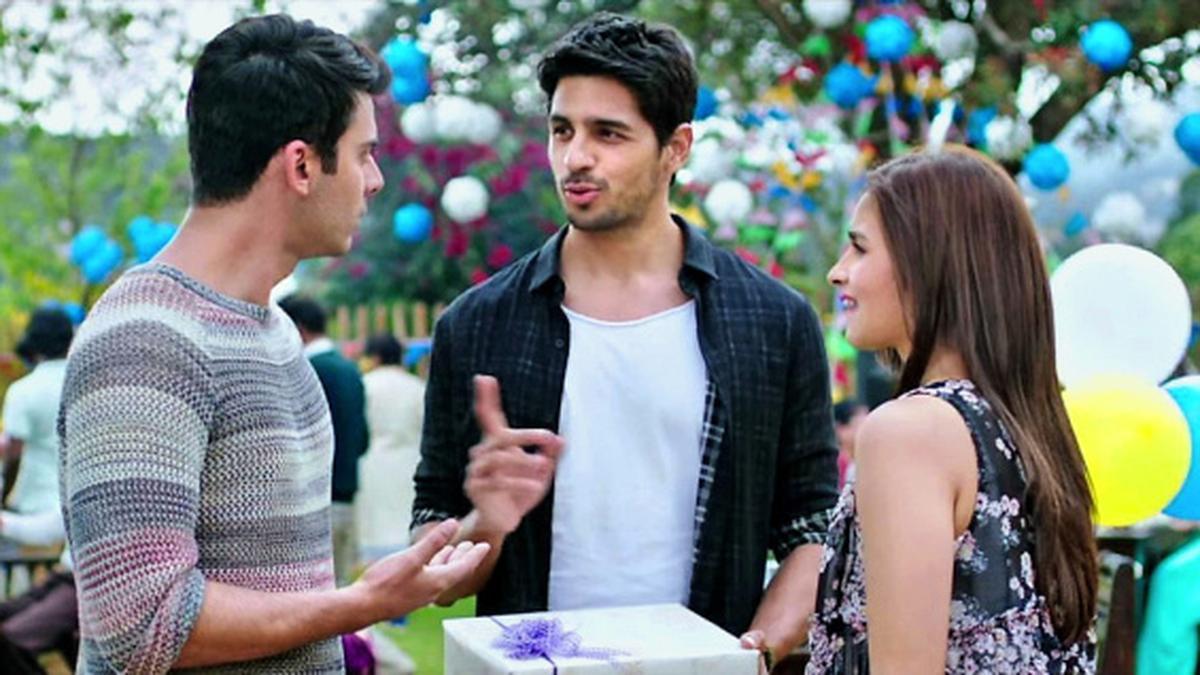
This year, certain work commitments have scuppered my plans to be home for Durga Puja. As I moped and whined and looked up new Bengali restaurants in Mumbai, my thoughts drifted to The Bear, which swept the comedy Emmys. In the globally-acclaimed series, Carmy, a top-rated New York chef, returns to his hometown of Chicago after his brother’s suicide. Over three anxiety-inducing seasons, we watch Carmy as he strains every nerve (his and everybody else’s) to turn their chaotic, family-owned sandwich shop into a high-end restaurant. Carmy is advised by his uncle to “be the guy”, to keep his eyes on the ball, yet home — with its unruly sauces and kitchen scars of grief — keeps butting in.
Homecoming is a messy, delicate affair. Over a decade ago, we met a different Carmy, of a lower calibre. The 2012 Hindi comedy “Luv Shuv Tey Chicken Khurana” is a bittersweet take on family, food, and identity. Having stolen from his own grandfather and skedaddled to the UK, Omi (Kunal Kapoor), years later, is forced to return. He takes over his family’s crumbling dhaba, but only a secret recipe, the titular ‘Chicken Khurana’, now lost, can restore its shine. Sameer Sharma’s film is The Bear on a low, gentle flame, and the final reveal is both hilarious and unexpected.
“Maybe that’s all a family really is,” says the protagonist of “Garden State”. “A group of people who miss the same imaginary place.” Watching Zach Braff’s 2004 comedy for this column, I was struck less by the intended poetry of that line than by how much Braff — who was 29 when he starred in his own directorial — resembled Sidharth Malhotra. One of Malhotra’s sturdier performances can be found in “Kapoor & Sons” (2016), a Bollywood comedy with the heart of an American dysfunctional family drama. There is a superlative scene — beautifully choreographed by director Shakun Batra — with the entire family yelling and blame-shifting as a broken water pipe gushes forth. It spills like home.
A still from ‘Garden State’
Not all homecoming films are comedies. There are countless thrillers — the 2020 Australian film “The Dry” comes to mind — where the central character returns to their childhood town and embeds themself in a mystery. Then there are the adoptees, in films like “Lion” (2016) and “Return to Seoul” (2022), tugged by origins and quests that transcend geographies. There are also films that point to the impossibility of return: though Sumit and Priyanka, the eloped couple in “Pokhar Ke Dunu Paar” (2023), are back in Darbhanga, hard-up during the lockdown, they cannot go home.
Imaginary places, indeed.
. As Gregory Alan Isakov sings in ‘Big Black Car’, “Through the carnival we watch them go round and round // all we knew of home was just a sunset and some clowns.”
In examining the theme of homecoming in cinema, it becomes clear that the act of returning home is often fraught with tension, comedy, and breakthroughs. When reflecting on The Bear, one sees the myriad ways the familiar environment challenges and reshapes the protagonist. Carmy is forced to navigate the chaotic dynamics of his family’s sandwich shop while striving to uphold his professional aspirations. This delicate balance between personal and professional life forms the core of many stories about coming home.
Similarly, in “Luv Shuv Tey Chicken Khurana,” the protagonist Omi’s return is couched in themes of redemption and reconciliation. The secret recipe of Chicken Khurana symbolizes the lost heritage that can only be reclaimed through reconnection with the past. Food, in this film, becomes a bridge between the old and the new, serving as a metaphor for the journey back to one’s roots.
“Garden State,” on the other hand, explores homecoming through the lens of a young man disenchanted with life until he revisits his old haunts. This return home spurs introspection and transformation, showing that sometimes the quest for a sense of belonging leads inward rather than outward.
Cinematic portrayals of homecoming also delve into darker themes, as evidenced by “The Dry.” This thriller pivots on the protagonist’s return to a hometown shrouded in mystery and past traumas, revealing how unresolved issues can haunt the act of coming back.
Meanwhile, films like “Lion” and “Return to Seoul” explore more complex narratives around identity and belonging. These stories unravel across continents, highlighting that a return home can be both a physical journey and an emotional pilgrimage. In “Lion,” based on a true story, the protagonist’s quest to find his birth family underscores the eternal human hunger for origin and connection.
And while some films like “Pokhar Ke Dunu Paar” critically assess the impossibility of return, these narratives remind us that home is often an evolving concept rather than a static destination.
In conclusion, the theme of homecoming in cinema transcends simple narratives of return. It is a tapestry woven with comedy, drama, mystery, and introspection. Each film offers a unique perspective on what it means to return home, making the journey itself an essential part of the story. As I sit here in Mumbai yearning for Durga Puja back home, these films offer solace — a cinematic homecoming of sorts, inviting us all to reflect on the varied shapes and shades of home. From The Hindu cinema team, a fortnightly column recommending films and shows tied to a mood, theme, or pop culture event.
Published – September 28, 2024 04:37 pm IST
Indian cinema /
Hindi cinema












